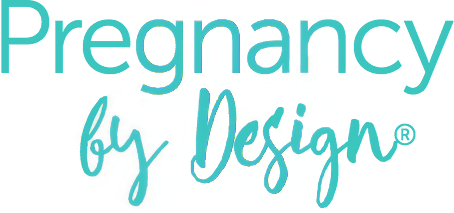Many have heard how good breastmilk is. But most do not know the depth of how amazing and integral breastmilk and breastfeeding are to the baby’s health and nutrition over their entire lifetime.
Occasionally the news announces new discoveries in breastmilk composition—and the amazing thing—we are STILL learning and discovering how amazing breastmilk’s makeup and structure are and its impact on breastfed babies. Since artificial infant formula companies spend millions of dollars each year advertising their product, it is not completely shocking that most people don’t know how different breastmilk is in comparison to artificial infant formulas. Nor do most people fully understand the level and impact that breastfeeding has on the child’s health and development. As most people do not understand the biological impact of not breastfeeding, adding tag lines such as breast is best or fed is best further muddies the conversation.
Why the tagline Breast is NOT Best
I am not a fan of the tagline “breast is best”. It implies that the alternative is a fine choice that bears only a small impact on the child’s life. And I am also not a fan of the tag line “fed is best.” It implies that there are no consequences at all in the nutrition and infant feeding method. It implies that there is no value in striving to overcome breastfeeding issues that arise.
Maybe I caused your eyebrows to wing up with the previous statements. And maybe you’re asking: do you not want a child fed? do you hate formula? Are you one of the “breastfeeding people” that wants half-starved infants hanging onto the breast and breastfeeding?
My answers might surprise you.
In the course of my practice I sometimes must explain to a mother that their infant needs artificial infant formula or donor breastmilk. I am a firm believer in supplementing with either the mom’s expressed breast milk, donor breast milk if a possibility, or bottle feeding with infant formula when a baby is not breastfeeding well, or when a mother truly has a low breast milk volume/supply. This temporary situation occurs while we work with new moms to bring the breast milk volume up or bring the infant to the breast with enough strength to transfer the breast milk while breastfeeding at the breast. Due to the complexities in achieving those objectives, it is critical to have help from an advanced practice knowledgeable IBCLC. So, the tagline truly needed around the world should be ” a knowledgeable IBCLC is best.”
Why the tagline Fed is NOT Best
“Fed is best” leaves a breastfeeding woman with no help as it doesn’t address the root problem. Nor is it fueling the medical community to learn more about helping breastfeeding women with the right information and better support for low breastmilk volume (not producing enough milk) or an infant that doesn’t transfer their breastmilk volume. It leaves a breastfeeding mother wondering why she can’t have the breastfeeding relationship she desires. It leaves so many with the wrong impression about what is normal in breastfeeding. It leaves everyone with minimal or incorrect information leading to an ill-informed consent. Informed consent is the act of choosing a course of action, or surgery, or medication, etc. based on all the facts and information. “Fed is best” robs new parents of the truth and the knowledge that there are risks to feeding with artificial infant formula like asthma, allergies, gut disorders and other health problems. It robs people of the desire to learn all there is to know about breastfeeding versus artificial formula feeding. Healthcare professionals who care for infants, pregnant women, and mothers misunderstand the importance of learning how to bring a baby back to breastfeeding at the breast. Taglines carry no real solutions and no real intervention methods to heal the situation.
The Research on Breastmilk
Evidence-based research on breastmilk at the microscopic level shows billions of live and active cells. The live cells in human milk positively impact the overall health of an infant with lasting benefits throughout the individual’s life. One type of live cell in breastmilk is stem cells. The very cells that will change to become the cells that are most needed within the infant. These sought-after miracle cells help rejuvenate tissue and organs. That truth alone bears a real conversation and real consideration when deciding how and what to feed baby.
An additional health benefit of breastfeeding at the breast is the impact it has on the oral and facial structure of the person for their entire life. Some dentists can even tell whether a person was bottle-fed or breastfed during their infancy because of the structure of the palate inside the mouth.
The incidence of cancer for both the breastfeeding mother and the baby are reduced (Source)! And the research shows that most women are unaware nor informed of this life impacting truth by their healthcare providers or pediatricians who know very little about breastfeeding, milk production, expressing milk, or even what a lactation consultant does during a consult!
The American Academy of Family Physicians recommends that breastfeeding continue throughout the first year of life and that “As recommended by the WHO, breastfeeding should ideally continue beyond infancy, but this is not the cultural norm in the United States and requires ongoing support and encouragement. It has been estimated that a natural weaning age for humans is between two and seven years. Family physicians should be knowledgeable regarding the ongoing benefits to the child of extended breastfeeding, including continued immune protection, better social adjustment, and having a sustainable food source in times of emergency. The longer women breastfeed, the greater the decrease in their risk of breast cancer.” They also note that “If the child is younger than two years of age, the child is at increased risk of illness if weaned.”
Health Issues Linked to Artificial Infant Formula
Most people don’t know that artificial infant formula predisposes an infant to health problems including gut issues, allergies, metabolic disorders like diabetes and obesity. The outcome for the formula-fed infant is a consistent struggle to fight off infections that can lead to issues that may follow a child for the rest of their life. That means the child is more likely to spend their lives fighting off gut related issues and immune system disorders. All of this happens because our healthcare providers lack real knowledge in lactation, milk production, latch-on techniques, and how to assess for the 4 types of tongue tie.
Some people will say they are “fine”, and their children are “fine” who were fed formula or very little expressed milk. But we rarely define what “fine” means. If we dig deeper, we find out that the individual may have a whole host of struggles with their health. These struggles include everything from weight, intestinal distress, cardiac issues, emotional health and mental health issues.
Making Careful and Informed Choices
Feeding our children is an emotionally charged journey.
We as mothers make it our guilt or triumph when it comes to breastfeeding or not breastfeeding.
This article is not to place blame or guilt on a mother. This article calls for each to carefully and make a fully informed choice. This article calls for medical professionals to stop saying “Oh, just give formula. It will be fine.” This article calls for every breastfeeding helper, provider, consultant, and healthcare worker to become more knowledgeable on how to help a woman find success and to be successful in their breastfeeding journey. I am calling for providers to not dismiss a mother who is looking for real and practical solutions, and real evidence about her choices. Each mother deserves to have information about the impact those choices have on the entire life of their child.
I know the difficulties and challenges that breastfeeding mothers encounter from latch issues to expressing milk, to low milk supply. I know the impact of nutrition on whole-life wellness. I want each baby to get the biological gift of life nutrition and health from the very start. I want the tag line to be “a knowledgeable IBCLC is best” with real answers and real solutions to make women able to give the biological gift of breastmilk anytime they want to.
Come bring your questions and thoughts to us by leaving a comment here.
Disclaimer: Pregnancy by Design’s information is not a substitute for professional medical advice or treatment. Always ask your healthcare provider about any health concerns you may have.
Cited Research
American Academy of Pediatrics (2016). Benefits of Breastfeeding for Mom. Retrieved from https://www.healthychildren.org/English/ages-stages/baby/breastfeeding/Pages/Benefits-of-Breastfeeding-for-Mom.aspx
Breastfeeding and the Use of Human Milk. Section on Breastfeeding.
Pediatrics Mar 2012, 129 (3) e827-e841; DOI: 10.1542/peds.2011-3552. Retrieved from http://pediatrics.aappublications.org/content/129/3/e827
Dieterich, C. M., Felice, J. P., O’Sullivan, E., & Rasmussen, K. M. (2013). Breastfeeding and health outcomes for the mother-infant dyad. Pediatric clinics of North America, 60(1), 31–48. doi:10.1016/j.pcl.2012.09.010
Infant and Young Child Feeding: Model Chapter for Textbooks for Medical Students and Allied Health Professionals. Geneva: World Health Organization; 2009. SESSION 2, The physiological basis of breastfeeding. Retrieved from: https://www.ncbi.nlm.nih.gov/books/NBK148970/
JAMA Network Journals. Breastfeeding associated with decreased risk of overweight among children in Japan. JAMA Pediatrics. Published online August 12, 2013. DOI: 10.1001/jamapediatrics.2013.2230
Kim, H. N., Jung, Y. A., Kang, L. L., Park, H. K., Hwang, H. S., & Park, K. Y. (2018). Association between Breastfeeding and Prevalence of Diabetes in Korean Parous Women: The Korea National Health and Nutrition Examination Survey, 2010-2014. Korean journal of family medicine, 39(5), 273–278. doi:10.4082/kjfm.17.0023
Mazhukhina, K.; Komo News (2108). Study: Docs don’t tell moms that breastfeeding lowers cancer risk. Retrieved from: https://komonews.com/news/local/study-docs-dont-tell-moms-that-breastfeeding-lowers-cancer-risk
Palmer; International Lactation Consultant Association (1998). The Influence of Breastfeeding on the Development of the Oral Cavity: A Commentary. Journal of Human Lactation, Volume 14, Issue 2, pp 93-98. Retrieved from http://www.brianpalmerdds.com/bfeed_oralcavity.htm
Riordan, J., & Wambach, K. (2010). Breastfeeding and human lactation (4th ed.). Sudbury, Mass.: Jones and Bartlett Publishers.
Shaker I., Scott J.A., Reid M. (2004). Infant Feeding attitudes of expectant parents: breastfeeding and formula feeding. Journal of Advanced Nursing, Feb;45(3):260-8. Retrieved from: https://www.ncbi.nlm.nih.gov/pubmed/14720243
Stuebe A. (2009). The risks of not breastfeeding for mothers and infants. Reviews in obstetrics & gynecology, 2(4), 222–231.
Walker, M. (2014). Breastfeeding Management for the Clinician: Using the Evidence. Sudbury, Mass.: Jones and Bartlett Publishers, 131-178. Retrieved from: https://www.who.int/maternal_child_adolescent/documents/9241595230/en/
World Health Organization (2008). The International Code of Marketing of Breast-Milk Substitutes: Frequently Asked Questions. Retrieved from: https://www.who.int/maternal_child_adolescent/documents/9241594292/en/
World Health Organization (2009). Acceptable medical reasons for use of breast-milk substitutes. Retrieved from: https://www.who.int/maternal_child_adolescent/documents/WHO_FCH_CAH_09.01/en/



 Wellness Mama Birth Plan Podcast – Dr. Elizabeth Pearce
Wellness Mama Birth Plan Podcast – Dr. Elizabeth Pearce






Leave a Reply